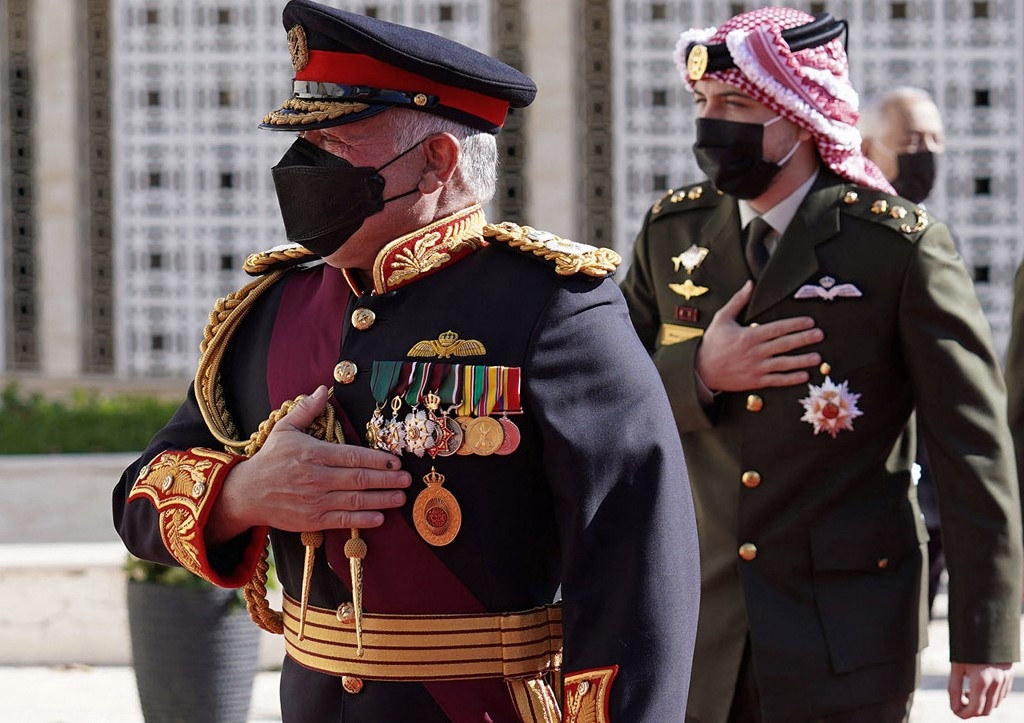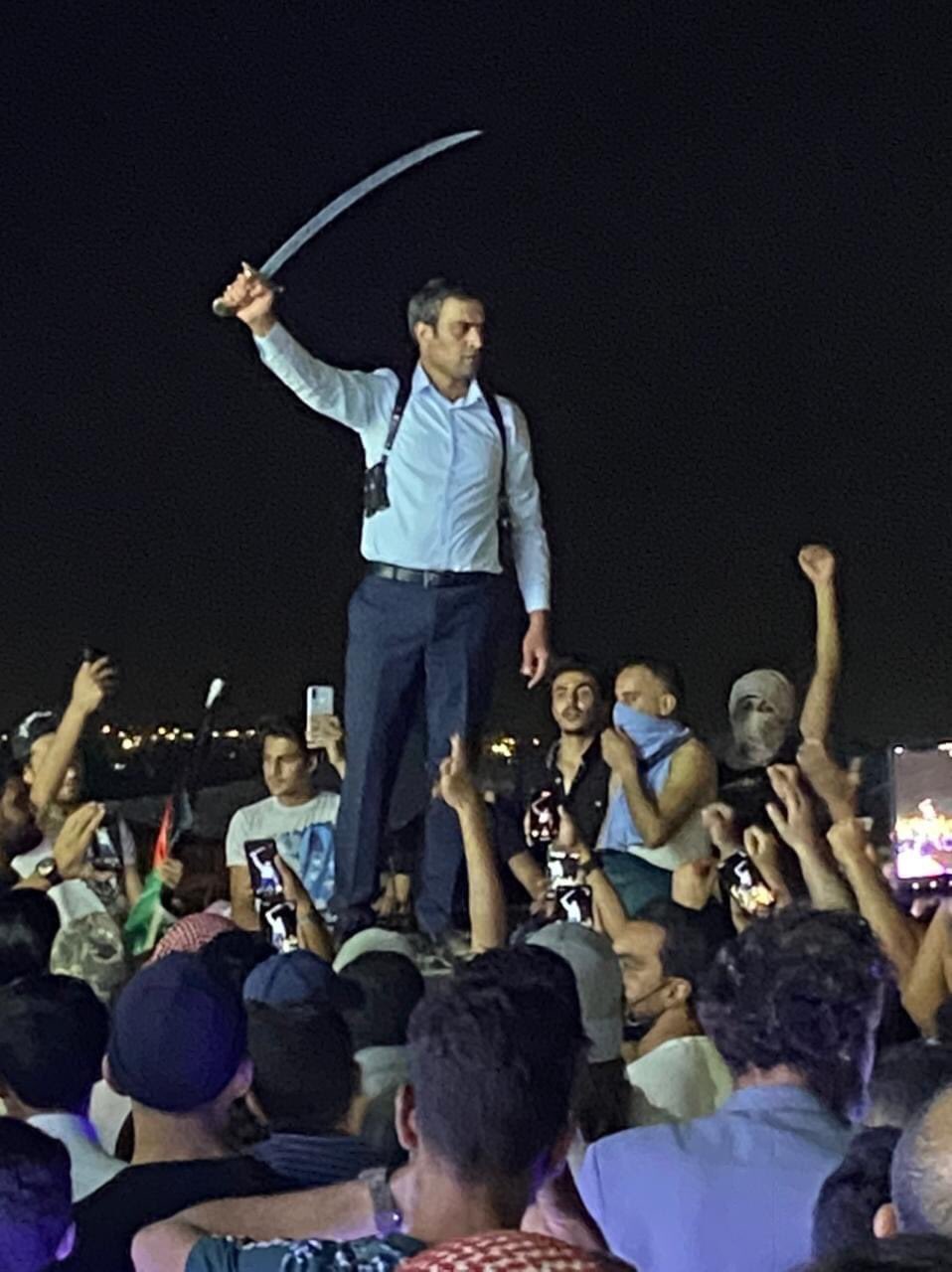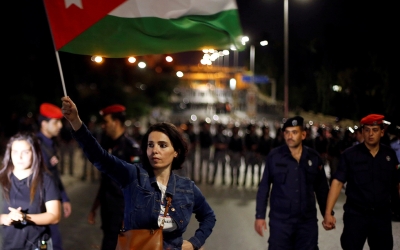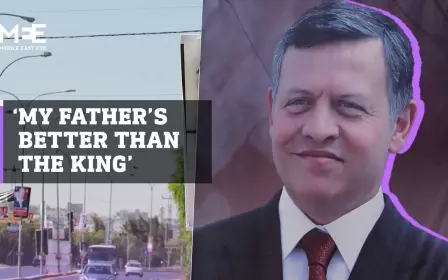Jordan: MP who threatened to kill king dismissed as tribal rift grows

The Jordanian parliament's recent sacking of an outspoken tribal figure who criticised the king has triggered concerns about the potential for rising tensions between the monarchy and the MP's tribal allies.
On Sunday, Jordanian MPs voted in an emergency session to expel lawmaker Osama al-Ajarmeh from parliament after he was accused of causing riots over the weekend.
Violent confrontations between police and tribal supporters of the MP on Saturday left four police officers wounded in the suburb of Naour, a stronghold of the Ajarmeh tribe in southwest Amman.
Earlier last week, Jordanian MPs voted unanimously to suspend Ajarmeh's membership for a year, accusing him of insulting the lower chamber during one of his speeches.
'What we are seeing is an insurgency against the idea of a state. Whoever says otherwise has no idea what the reality is like'
- Omar Ayasrah, member of Jordan's parliament
Ajarmeh accused the government of deliberate nationwide power outages last month to prevent a pro-Palestine march on the capital Amman by tribes demanding the expulsion of the Israeli ambassador following deadly air strikes on Gaza.
While many have objected to the decision to suspend him over his parliamentary speech, other videos of Ajarmeh that later surfaced online garnered support for his ousting.
In one video clip that went viral, he described the king as "a pig" and said he would be willing to "shoot him between the eyes" with a pistol. In what looked like a cinematic display, with Bedouin Saudi music in the background, Ajarmeh addressed a crowd of masked male supporters, carrying a sword given to him by men from the Bani Hassan tribe, and with a gun in a shoulder holster.
In other videos he has threatened to launch "a radical Jordanian right-wing", including tribes and former army commanders, to “purge Amman of the liberal elite”.
The comments were denounced by fellow MPs, 109 of whom signed a memorandum calling for his permanent suspension. Parliament Speaker Abdulmunim Oddat on Sunday denounced Ajarmeh’s “perverted utterances” and “devious, slanderous” allegations about the king.
“I hereby declare the parliament’s support to the king against all attempts targeting his prestige, and reject any tampering with the kingdom’s social fabric, its tribal and family harmony, and social peace, which form the basis for Jordan’s security and stability,” Oddat said in a statement signed by other MPs.
'Big deal'
Among his supporters, however, the expelled MP has gained celebrity status.
“This is not a storm in a teacup. It is a big deal," Saleh al-Armouti, one of the few lawmakers who voted against the firing of Ajarmeh, said.
He attributed Ajarmeh's controversial remarks to "anger and frustration due to the absence of any real reform and the retraction of basic freedoms".
'There is clearly a lot of anger inside our large society, and this is dangerous especially when it builds up and explodes into uncontrolled chaos'
- Munther al-Hiwarat, political commentator
“All relevant parties have failed in managing the crisis of MP Osama al-Ajarmeh," he told MEE.
However, MP Omar Ayasrah, who voted for suspending Ajarmeh, described the protests staged by his supporters as “an insurgency”.
“What we are seeing is an insurgency against the idea of a state. Whoever says otherwise has no idea what the reality is like," he said in a video broadcast on Facebook.
"Today we are seeing live fire against the state and an extremist speech that is trying to turn tribes into destroyers rather than builders.”
Ayasrah said that the new rhetoric is "dangerous" and constitutes an attempt to bring Jordan back to the pre-state period of local rather than central government.
Tribal grievances
The Ajarmeh case has raised questions about the potential for further tensions in the relationship between Jordanian tribes and the regime.
The tribes have historically had excellent relations with the Hashemites, ever since Prince Abdullah Ibn Hussein came to the city of Maan in south Jordan in 1920, to later establish Trans-Jordan. As a result, tribes have received special treatment, especially in government job appointments.
Sheikh Qader Mithqal al-Sardiah, a tribal leader in Mafraq governorate, told MEE that there is a growing schism between the regime and the tribes, especially in the past few years, due to their sense of marginalisation.
“There is a growing feeling of isolation and disenfranchisement by the tribes, due to their distance from political and economic decision-making, which has contributed to a spike in unemployment among their youth," he said.
“For the relations to return to normal, we need to reopen the channels of communication between the government and the tribes and provide equal and just opportunities to all Jordanians through serious political reform," he added.
"This requires a new electoral law and a commitment not to interfere in the will of the people.”
Political commentator Munther al-Hiwarat called for a serious democratic discussion about the meaning of community.
“There is clearly a lot of anger inside our large society, and this is dangerous especially when it builds up and explodes into uncontrolled chaos," he told MEE.
He added that the best way to deflate this anger is to give people a wider space to represent themselves so that they can feel that they are participating in decision-making. "We are facing an existential moment for Jordan on both the economic and political fronts," he said.
Middle East Eye propose une couverture et une analyse indépendantes et incomparables du Moyen-Orient, de l’Afrique du Nord et d’autres régions du monde. Pour en savoir plus sur la reprise de ce contenu et les frais qui s’appliquent, veuillez remplir ce formulaire [en anglais]. Pour en savoir plus sur MEE, cliquez ici [en anglais].






